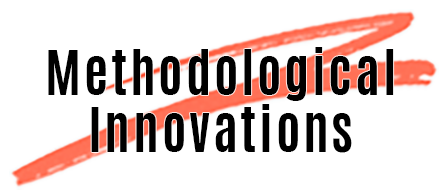What was the event like and how did it feel to co-organise it? This section of the site provides summaries (in a variety of formats) to help answer these questions.
See auditory and visual reflections below including Word Clouds made by Menti, two podcast episodes and a series of Six(ish) word stories.
Written Summaries of the Conference
The conference was split into the following 10 sections:
- Introduction and overview of the day (Juliet Hall, Harriet Marks & Cheralyn May)
- Creativity exercise (Gayle Letherby)
- Disrupting Stories: The Ethics and Purpose of Research (Julie Parsons)
- Messing it up…Disrupting Normative Approaches by Trialling Novel Methods (Harriet Marks, Cheralyn May and Juliet Hall)
- Squeezing a space for working class narratives throughout the pandemic (Lisa Mckenzie)
- Creativity exercise and reflection (Gayle Letherby)
- Disrupting normative methodologies: Slow method, collaboration, and community (Natasha Mauthner and Andrea Doucet)
- Radical Listening: a creative approach to methods and methodology (Carol Gilligan)
- Sharing creative outputs (all)
- Final activity, the way forward and conference close.
If you want to find out more about the papers from the day, click here to read the abstracts:
Written Summary of the Conference Overview and Digital Resources Used
This BSA Postgraduate Regional Event was co-organised by three postgraduate students at the University of Plymouth that are all using collaborative and/or creative approaches in our own research. We organised this conference as an opportunity for discussion about the use of these approaches which challenge traditional methodologies, to share our experiences and as a learning opportunity for us all.
We are extremely grateful to the excellent speakers who presented at this event and to Gayle Letherby who agreed to be our chairperson and facilitator of some amazing activities, which got our creative juices flowing.
We used a Facebook group to create a virtual community before the event and during the event, we used Zoom’s Chat function and Q&A function, which were useful as the former allowed space for comments, technological queries and empowering feedback, while the latter allowed for questions that delegates wanted speakers to answer to be kept separate, preventing these from getting lost and enabling easier replying. Questions were added to the Q&A function at any time during the sessions so delegates did not need to wait until the speakers had finished their papers. Automatic closed captions were enabled throughout. Menti was used for a quiz at the beginning and end of the event – see below for more information on this. We also had a live illustrator who attended the conference and produced two illustrations based on the event. See link to this here:
Menti Perspectives
At the conference, we used Menti within the ‘Introduction and Overview of the Day’ and the ‘Final Activity’ to understand how attendees were feeling and what their perceptions were of creative methodologies. Here are some images from these below:



Creative Methods 2023 Podcast
Our informal two episode podcast features a series of reflections from Harriet, Juliet and Cheralyn, three postgraduate students, on our experiences leading up to and succeeding the event. The episodes are available for you to listen to on Spotify and Spotify for Podcasters. You do not need to have an account with either of these to listen and can listen online or on the apps.
Creating a Creative Conference
In Episode 1, ‘Creating a Creative Conference’, we explore how we felt and what we did when preparing to organise a conference.
Reflections after Creating a Conference
In Episode 2, ‘Reflections after Creating a Conference’, we explore how it felt to co-organise a conference and what we have been up to since.
Six(ish) Word Stories
Juliet Hall, conference co-organiser, wrote a series of fantastic six(ish) word stories during the conference. The stories that she wrote about each paper (or sub-paper) are below.
Cheralyn May
Single people deserve to be heard.
My experience isn’t necessarily your exper ience.
Shared experiences and vulnerability makes connections.
Harriet Marks
Always dizzy. Can’t function. No-one understands.
Invisible doesn’t mean it’s not real.
Paloma Faith. Upside Down. That’s me.
Lisa Mckenzie
Working class stories should be told.
History in action, capturing real life.
Working class lives aren’t always shit.
White middle class men make rules.

Natasha Mauthner and Andrea Doucet
Carol Gilligan inspires research practies globally.
Creating Communities of slow scholarship practices.
Who decides what gets told? Him.
Focus research on strength not damage.
Slow movement challenges harmful narratives.
One size does not fit all.
Listen to women for social change.
Privilege the voice of the under-privileged.
What about us? Giving legitimate voice.
Slow methods dismantle his masters voice.
Carol Gilligan
Listening: The key to human experience.
Hearing the hidden voice of experience.
Listen to what’s not been said.
Listening for discovery. Hearing human experience.

Acknowledgments and Thanks
We would like to thank everybody that has helped us to put on this event.
Enormous thanks go to all of our speakers for giving us your time. We are absolutely delighted that you all agreed to participate in this event and have been so supportive. The quality of the speakers, and the number of delegates has far, far exceeded our expectations.
We are also extremely grateful to the BSA Events Team, the University of Plymouth Digital Education and Events Teams for helping with the administration and for delegates for joining us for the event.
Special thanks also go to Gayle Letherby who has had a huge influence on our own Auto/Biographical research journeys and for agreeing to take on the role of Chairperson.
Finally, to Julie Parsons, enormous thanks for your unfaltering support and encouragement. Always available to offer advice whether it be to about our grant application, conference organisation and throughout our studies. We are extremely grateful that you agreed to present your work which has been so inspirational to us; in our use of creative and collaborative approaches in our own research.


The first image of us is a screenshot from Zoom and the second is a cartoon version of us, created by a scriber called Jack Saunders / @JUNKBYJACK.
